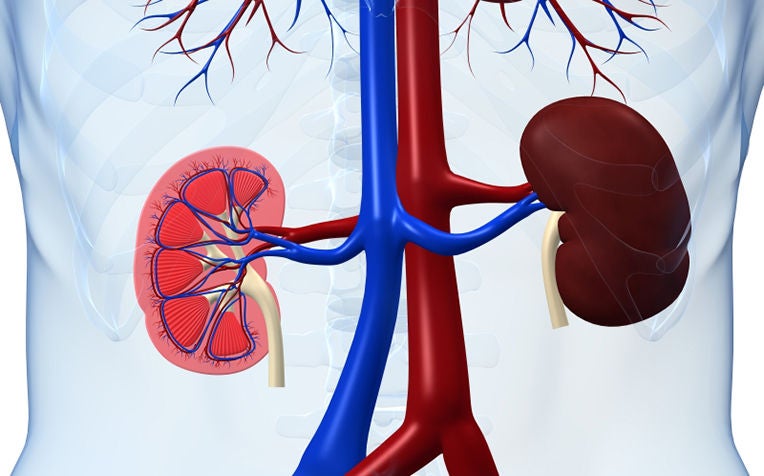
Symptoms of glomerulonephritis (or the inflammation of kidney blood vessels) include a sudden puffiness in your face or foamy or dark-coloured urine.
Don’t ignore a sudden puffiness in your face or foamy or dark-coloured urine.
These may indicate a type of kidney disease called glomerulonephritis.
Glomerulonephritis is the medical term for the inflammation of the kidney’s miniature blood vessels which filter the blood. These tiny filters, called glomeruli, play an important part in removing excess fluids and wastes from the body.
If glomerulonephritis is not treated, the kidneys will eventually lose their filtering capacity completely. This leads to irreversible kidney failure and the need for kidney dialysis or a kidney transplant.
“A sudden and short episode of glomerulonephritis can be reversible. However, chronic glomerulonephritis tends to cause severe kidney damage,” says Associate Professor Terence Kee, Senior Consultant from the Department of Renal Medicine at Singapore General Hospital (SGH), a member of the SingHealth group.
Glomerulonephritis is usually caused by autoimmune diseases, or bacterial/viral infections.
Autoimmune causes of glomerulonephritis
- Lupus: This autoimmune disease can cause chronic inflammation in the kidneys and other parts of the body.
- IgA nephropathy: IgA is an antibody produced to fight infections. If too much IgA proteins are deposited in the kidneys, it can inflame the kidney filters and impair their function.
- Goodpasture’s syndrome: This is a rare autoimmune disease where the body’s immune system mistakenly attacks the lungs and kidneys.
Infectious causes of glomerulonephritis
Besides autoimmune diseases, untreated strep throat or skin infections caused by Streptococcus bacteria may trigger a sudden bout of acute glomerulonephritis.
The body normally produces antibodies to combat infections. Untreated infections may stimulate an overproduction of antibodies. When these get deposited in the kidney filters, they can cause inflammation leading to glomerulonephritis.
Symptoms of glomerulonephritis
Early stages of glomerulonephritis show no symptoms so it is important to have regular health screenings to detect signs of blood or protein in the urine.
As kidney disease sets in, these symptoms may appear:
- Pink or brown-colored urine due to blood in the urine (hematuria)
- Foamy urine due to excess protein
- Swelling on your face, hands, feet and abdomen (due to the kidneys’ failure to remove wastes from the body)
- High blood pressure
- Fatigue from anaemia or kidney failure
- Less urine output
- Nausea and vomiting
- Chills and fever
- Headaches
Treatment of glomerulonephritis (inflammation of kidney blood vessels)
The goal of treatment is to prevent glomerulonephritis from progressing to total kidney failure or end-stage kidney disease.
Treatment will depend on the underlying cause and whether glomerulonephritis is acute or chronic.
If the underlying cause is a strep throat infection, doctors can prescribe antibiotics to kill the Streptococcus bacteria.
If the underlying cause is an autoimmune disease, doctors can prescribe anti-inflammatory drugs such as corticosteroids and immune-suppressing medications.
“It is common for patients with glomerulonephritis to develop high blood pressure. This development needs to be carefully monitored to prevent it from further damaging the kidneys,” says Assoc Prof Kee.
High blood pressure drugs can include angiotensin-converting enzyme (ACE) inhibitors or angiotensin II receptor blockers to dilate the blood vessels.
How to prevent glomerulonephritis
Although most types of glomerulonephritis cannot be prevented, you can take the following steps to prevent progression to total kidney failure or end-stage kidney disease.
- Reduce high blood pressure (Target: 120/80 mmHg).
- Control diabetes and monitor blood sugar levels.
- Adopt a healthy, balanced diet high in fruit and vegetables, and low in sodium and saturated fat.
Ref: S13
Check out other articles on kidney health:
Kidney Failure: Causes, Symptoms and Prevention Tips
Kidney Dialysis: What You Need to Know
Kidney Cancer: How It Is Diagnosed and Treated
Link Between Red Meat and Kidney Failure
Kidney Stones: Causes and Common Symptoms
Kidney Failure in Singapore: Quick Facts
Contributed by

















